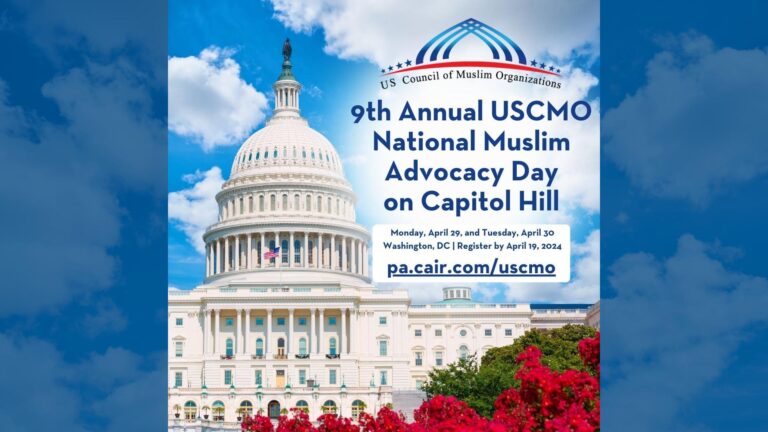Write to the Philadelphia Inquirer for publishing poor review of Doomsday Book that will feed anti-Muslim rhetoric and behavior
The Philadelphia Inquirer has published a book review by Jonathan V.
Last on Mark Steyn’s ‘AMERICA ALONE: THE END OF THE WORLD AS WE KNOW IT’. It has given coverage of an apocalyptic and doomsday book that will feed the anti-Muslim rhetoric and behavior highly prevalent in a post 9-11 world. There is no balanced review of the book’s ideas in the review article.
ACTION YOU CAN TAKE NOW:
1. Write a letter to the editor asking them to be more responsible in their approach to book reviews by covering balanced viewpoints within the book review : inquirer.letters@phillynews.com.
2. Contact book review staffer Jonathan V. Last: jlast@phillynews.com and ask him to write a piece that is a more balanced book review.
3. Contact Philadelphia Inquirer Editor, Bill Marimow: bmarimow@phillynews.com
Article reproduced below:
The Philadelphia Inquirer
November 19, 2006 Sunday
One Last Thing | The risk in the rise of Islam
BYLINE: Jonathan Last, for the Inquirer
SECTION: CURRENTS; Pg. D-7
LENGTH: 897 words
—-
Mark Steyn’s America Alone is the jauntiest bit of doomsaying you’ll ever come across. Part Philip Longman, part Samuel Huntington, part Robert Kagan, America Alone takes the two most important global trends – falling fertility and surging Islamism – and examines what the world around their intersection is going to look like.
Not that it takes much imagination. Throughout the developed world, birthrates are already falling to historically unprecedented lows. In Spain and Russia, for instance, fertility rates now hover about 1.1 births per woman – a number demographers call the “lowest low.” (A rate of 2.1 is needed for a stable population.) The result is that populations in these countries and many others, ranging from Europe to Russia to Japan, will begin a sharp contraction during the next 40 years. In some countries, the decline has already begun.
The other trend, the rising tide of Islam, is also well in evidence. As Steyn points out, every year, “more and more of the world lives under Islamic law… . Today, there are more Muslim nations, more radicalized Muslims within those nations, [and] more and more Muslims within non-Muslim nations.” Steyn notes that Islam is taking hold in the most unlikely places. What’s the most popular baby boy’s name in Belgium, Amsterdam, and Malmö? Mohammed.
Islam is, by definition, both a religion and a political system. As the population of Europe withers away, Muslim immigrants are amassing power, bringing the political culture of Islam into close conflict with Western liberalism. Steyn wonders what will happen when the laws of sharia smack up against the mores of Europe.
It is not an unfounded concern. Consider Bertrand Delanoë, who in 2001 became the first openly gay mayor of Paris. In October 2002, Delanoë was stabbed by a Muslim immigrant in the middle of a public festival. As Steyn writes, the good news is the would-be assassin wasn’t a “terrorist.” The bad news is he was merely a Muslim who hated homosexuals.
From the Danish cartoon riots to the persecution of Ayaan Hirsi Ali to the murder of Theo van Gogh, you can hardly go a fortnight without seeing some story of Muslim aggression in Europe. While one could see such crimes as the inevitable result of large numbers of people suddenly thrust into an alien culture, Steyn sees a wider significance to them: Such incidents are the precursors to conflict between a declining population with one set of values and a rising population with very different ones.
The European reaction thus far has been accommodation. In 2005, for instance, England’s chief inspector of prisons banned flying the flag of England on prison grounds, since it featured the cross of St. George, which might be offensive to Muslims. Britain’s version of the department of motor vehicles has also banned the English flag, as has Heathrow Airport.
Yet none of this has helped Europeans avoid trouble. Take the words of Sheikh Omar Bakri Mohammed to Lisbon’s Publica magazine shortly after the March 11 terror attacks in Spain: “We don’t make a distinction between civilians and noncivilians, innocents and noninnocents. Only between Muslims and unbelievers. And the life of an unbeliever has no value.”
As Steyn observes, there are no “root causes.” There is only an ideology that requires submission of the host culture. Even in a country as amenable as France. The French are hostile toward both Israel and America, they were against the Iraq war, and they are in favor of allowing Iran to pursue its nuclear dreams. If you’re an Islamist, what’s not to like?
Yet five days before the 2005 Bali slaughter, Steyn writes, “nine Islamists were arrested in Paris for reportedly plotting to attack the Metro.” When extremist terrorists attacked a French oil tanker, the group responsible, the Islamic Army of Aden, released a statement saying, “We would have preferred to hit a U.S. frigate, but no problem, because they are all infidels.”
No problem! But the real problem is that capital-T Terrorists aren’t the only problem. Steyn argues that “Islam itself is a political project.” We see this reflected repeatedly in news reports from France, Denmark, and other European countries, in which disaffected Muslims chafe at the trammels of Western law. Such reports bring to mind the grim admonishment of James C. Bennett, businessman and president of the Anglosphere Institute: “Democracy, immigration, multiculturalism. Pick any two.”
So where do we go from here? Steyn has some ideas. Noting reports that the majority of women in European battered women’s shelters are Muslim, he suggests a serious push for women’s rights in the Islamic world, which could fundamentally destabilize the Islamist project. Listing a number of Muslim terrorists who lived on the European dole – Muhammed Metin Kaplan, Abu Hamza, Abu Qatada, etc. – he posits that Euro-welfare should be remade. But ultimately, Steyn admits that Islam itself will have to be reformed if it is to become compatible with modernity.
Buried in America Alone is a question Steyn asks but leaves unanswered. Surveying the history of Islam as it has regressed over the last few generations, Steyn wonders: “We… talk airily about ‘reforming’ Islam. But what if the reform has already taken place, and jihadism is it?”
Some possibilities are too dark for even a book about the End of the World.
Contact Jonathan V. Last at jlast@phillynews.com.





